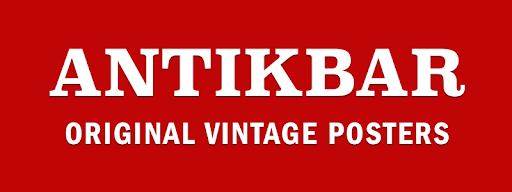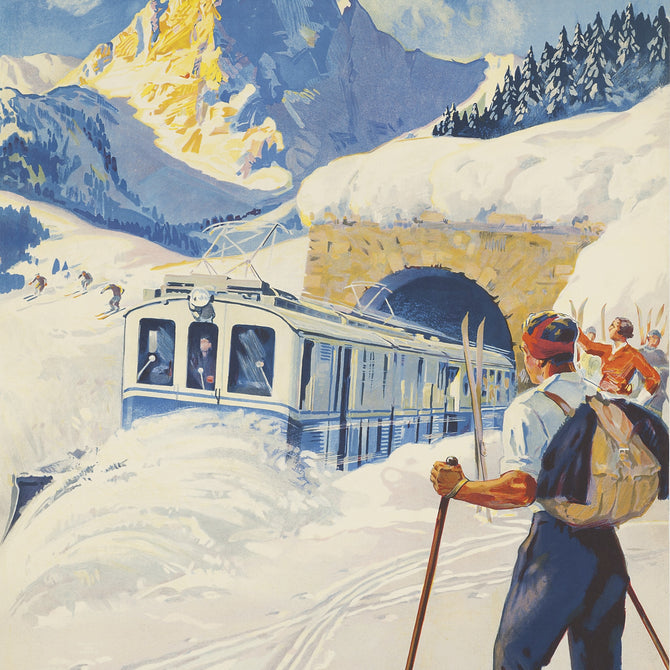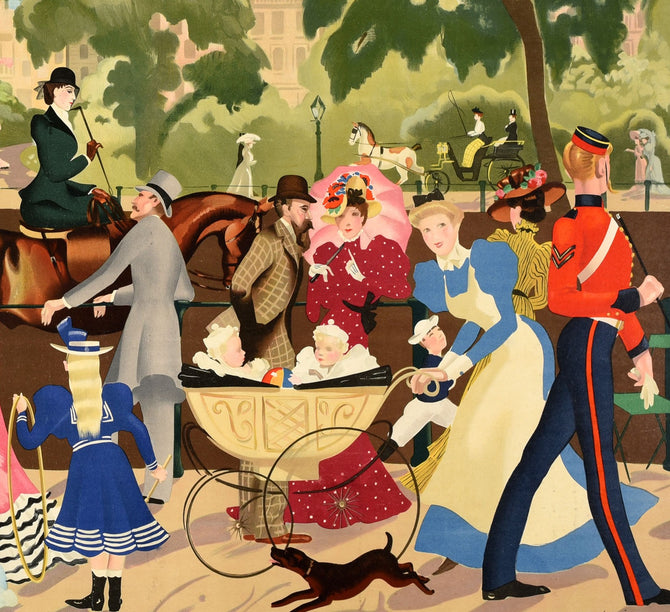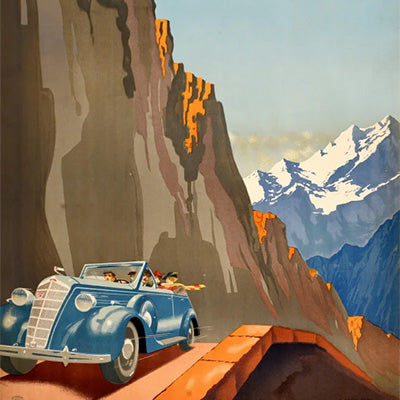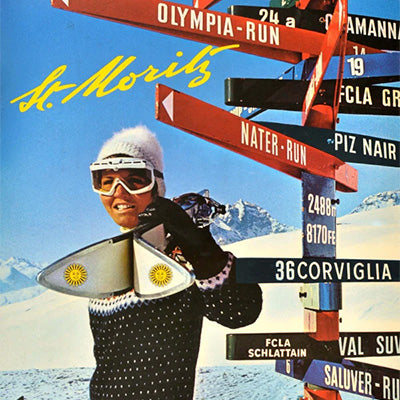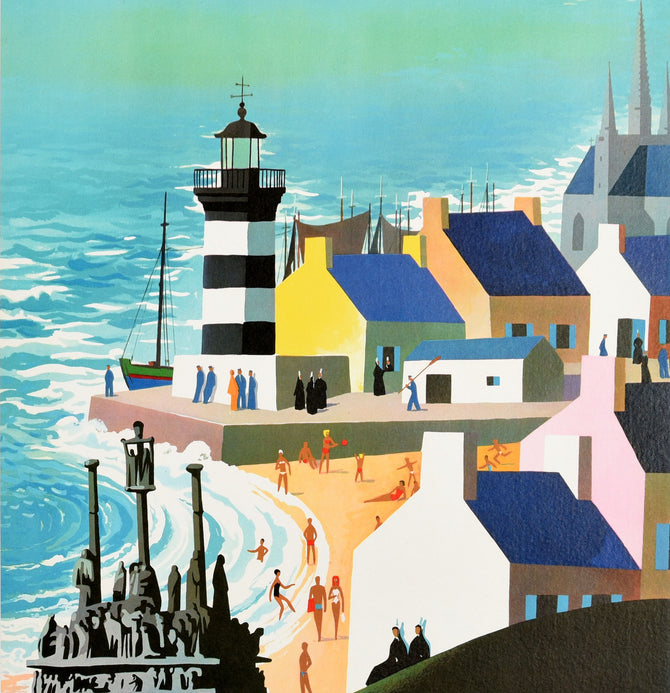GRAD: Gallery for Russian Arts and Design in collaboration with Antikbar is pleased to present ‘Kino/Film: Soviet Posters of the Silent Screen’. As the UK/Russia year of culture begins, this exciting exhibition examines the golden age of Soviet film posters and is co-curated by Elena Sudakova, director of GRAD, and film critic and art historian Lutz Becker.
The 1920s saw the advent of new and radical graphic design created to advertise silent films across the Soviet Union. Film posters of this era have become masterpieces in their own right, produced at a time when innovative on-screen techniques were being incorporated into the design of advertisements. Over 30 works by Aleksandr Rodchenko, the brothers Georgii and Vladimir Stenberg, Yakov Ruklevsky, Aleksandr Naumov, Mikhail Dlugach and Nikolai Prusakov, will be on display.
During the mid- to late-1920s cinema flourished in the Soviet Union. A relatively new art form, film matched the revolutionary ethos of an emerging generation of artists for whom fine art was deemed bourgeois. The advantages of using film as a propaganda tool for the largely illiterate masses were not lost on the government, who supported the burgeoning film industry. A state-controlled organisation, Sovkino, managed the distribution of foreign films, including those from the US which were very popular; profits were used to subsidise domestic film production. These Soviet films soon gained an international reputation through feature-length masterworks such as Battleship Potemkin.
Under the umbrella of Sovkino, Reklam Film was the department that controlled the production of film posters across the USSR and at its helm was designer Yakov Ruklevsky, who engaged a number of talented young artists. They created a whole new visual vocabulary for film posters, both foreign and domestic, incorporating the practices they saw on-screen. As the films were black and white, the designers employed their artistic licence to great effect, using vivid colour blocking and dynamic typographical experiments to capture the essence of each production, sometimes without having even seen it. The result is a body of work which is both powerful and enduring.
To accompany the exhibition GRAD will host screenings to showcase the innovative techniques employed by the poster artists and film-makers of this era. Excerpts of seminal films Battleship Potemkin, October and the ground-breaking documentary, The Man with the Movie Camera, will highlight the symbiotic relationship between the pioneering vision of directors such as Sergei Eisenstein and Dziga Vertov and the output of the poster artists engaged to promote them. Techniques such as cinematic montage, repetition, asymmetric viewpoints and dramatic foreshortenings were used in the creation of both the films and the posters, leading to the appearance of a distinctive and highly influential body of design. Mass produced during the 1920s, the posters were made for one use only and few originals survive. The exhibition at GRAD is a rare opportunity to see these seminal works, many of which have not been exhibited in the UK before.
The exhibition is open to the public from 17 January to 29 March 2014.The gallery opening hours are: Tue-Fri 11am–7pm, Sat 11am-5pm. GRAD, 3-4a Little Portland Street London W1W 7JB, tel.: +44 (0) 20 7637 7274
GRAD is an enterprising not-for-profit gallery exhibiting Russian art in central London, including rarely seen graphic arts and other works from Russian collections, as well as specially commissioned pieces. The gallery will hold special exhibitions with international co-curators from Russia and beyond, and seminars dedicated to academic and curatorial developments in Russian Art studies from the early 20th Century to the present day.
Elena Sudakova is a specialist in art from Russia and the former-Soviet Union, from the twentiethcentury to the present. Prior to founding GRAD, Elena headed up a series of curatorial projects forover ten years in Moscow, including partnerships with the Pushkin Museum and the State Museum ofLiterature. In her drive to bring the accomplishments of historical and contemporary Russian artists tolight, Elena went on to establish a curatorial collaboration – called G.O.S.T., which produced exhibitionsand scholarly publications in Moscow for over a decade. In 2011 Elena came to London to earn an MAin Russian Art at the Courtauld Institute of Art. In 2013 Elena founded the Gallery for Russian Artsand Design, with a personal mission to raise international awareness of the significant contributionmade by visual culture from Russia and the former Soviet Union.
Lutz Becker was involved in the seminal 1971 Hayward Gallery exhibition ‘Art in Revolution’, one ofthe first UK initiatives to examine Soviet design. A film-maker, curator and enthusiast of avant-gardecinema, Becker has since collaborated on further exhibition projects with the Hayward (‘The RomanticSpirit in German Art’ in 1994; ‘Art and Power’ in 1995), as well as the Tate Modern (‘Century City’ in2001). More recently he curated the South Bank Centre touring exhibition ‘Avant-Garde Graphics’ andthe Estorick Foundation’s ‘Cut and Paste – European photomontage 1920–45’.
Please contact us or visit us at our gallery to view our current exhibition and let us know if you would like to sign up for our next Introduction to Collecting Posters talk.
